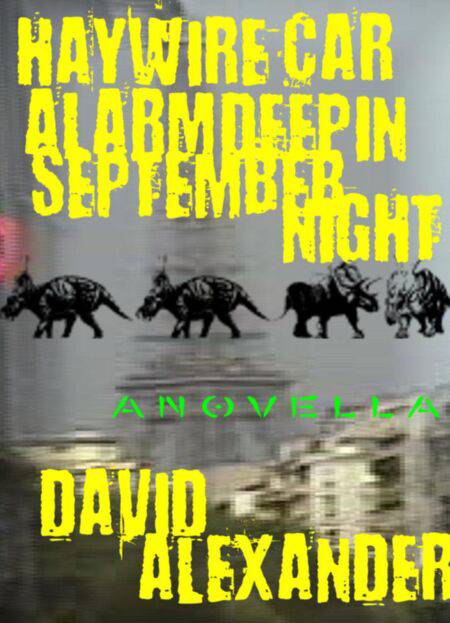
- Afhalen na 1 uur in een winkel met voorraad
- In januari gratis thuislevering in België
- Ruim aanbod met 7 miljoen producten
- Afhalen na 1 uur in een winkel met voorraad
- In januari gratis thuislevering in België
- Ruim aanbod met 7 miljoen producten
Omschrijving
David Alexander sets strong and resourceful characters into settings that are simultaneously familiar and bizarre. His stories are everyone's, at least everyone that is paying attention to the continual apocalypse of life and relationship on the cusp of the 21st century.
In Haywire Car Alarm Deep In September Night Alexander carries the vision of modern life to hallucinogenic heights and answers the dilemma of dream and reality: Each are so vitally important to the person experiencing them that the question of reality becomes secondary. What is most important in life is common to both: an urge to penetrate the mystery, to be socially effective, to solve, to writhe in pleasure and terror. In the waking and dreaming states, the observant mind finds that each informs the other, each provides insight to the other domain, each provides a possible solution to the mind that desperately attempts to contain them both.
As a critic, I feel compelled to complain about some failure of quality of the work that I criticize. However, I can find little to complain about. Alexander's characters are developed clearly through their actions. None of them spend much time complaining about their situation but instead face it squarely, dynamically, peering into the mystery, clearly seeing its details actively played out in visual and audio cues, and trying to interpret and solve. That they so often end in defeat in spite of their strengths, alludes to the awesome mass of the problem that we all face."
--San Francisco Salvo
"There are few young story writers working today more vibrant, innovative and exciting than David Alexander. His stories jump off the page in fits of sensory attack, spiritual complication, emotional trouble. I don't know where he came from, but I know where he's going -- to the front rank of American storytellers."
-- Frederick Barthelme
"Alexander is a modern de Maupassant with a Kafkian sense of linearity, a Borgesque bent for the uncanny, and a unique pile of resources to draw on. …His stories transcend interpersonal morality and ethics in a way calculated to elicit the pure subjectivity of the characters, without judgment. Unlike Dostoyevski's Raskolnikov, there is no redemption offered to readers demanding moral resolution. Poe's The Tell-tale Heart and much of Lovecraft's work come closest to what he does. Kafka gets the intellectual setup but doesn't develop the emotional intensity. [Alexander's] work is very unique."
--Robert Hunter (Grateful Dead Songwriter and Lyricist)
Specificaties
Betrokkenen
- Auteur(s):
- Uitgeverij:
Inhoud
- Taal:
- Engels
Eigenschappen
- Productcode (EAN):
- 9781386418030
- Verschijningsdatum:
- 18/10/2018
- Uitvoering:
- E-book
- Formaat:
- ePub

Alleen bij Standaard Boekhandel
Beoordelingen
We publiceren alleen reviews die voldoen aan de voorwaarden voor reviews. Bekijk onze voorwaarden voor reviews.









